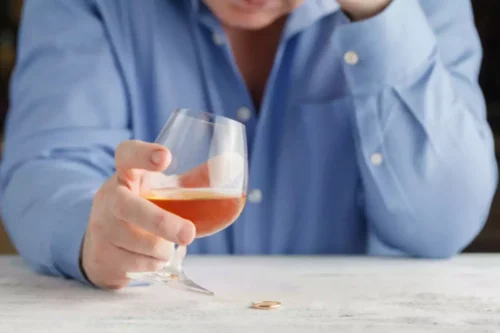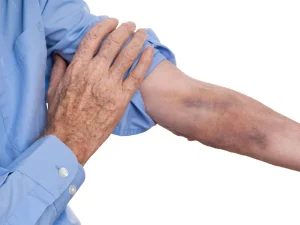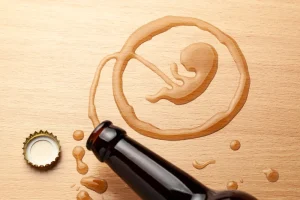
One of the most common types of therapy used to help treat addiction is cognitive behavioral therapy. You’ll work with a mental health professional to better understand how you think and what causes your cravings and how NOT to act on those cravings. Some supplements and nutrition strategies may assist in reducing alcohol cravings and withdrawal symptoms. Prolonged alcohol consumption can actually deplete the body of essential vitamins and minerals, causing nutritional deficiencies that may intensify cravings. Restoring these nutrients can help manage these cravings and support recovery.

Using Therapeutic Techniques to Reduce Cravings
Learning to work through difficult emotions and handle these challenges in more productive ways can improve your relationships and overall well-being, not to mention help reduce the urge to drink. Maybe you experience your strongest cravings when you feel anxious or stressed or find yourself curbing alcohol cravings facing conflict with someone you care about. The new edition of the Diagnostic and Statistical Manual of Mental Disorders (DSM-5) includes cravings as part of the diagnostic criteria for alcohol use disorder (AUD). Cravings won’t necessarily affect everyone who cuts back on alcohol.
Practice Coping Skills

You don’t need to identify as an alcoholic or put your life on hold to get help with alcohol cravings. Learning to navigate drinking triggers in daily life can be difficult. A recovery coach can give you tools for dealing with strong alcohol cravings, help you set achievable goals, manage shame and stress, and track your progress accurately. Having an experienced person to talk to about your unique challenges can give you the confidence and the skills to keep moving forward when the going gets tough. Some medication-assisted strategies and interventions reduce the physical responses when experiencing alcohol cravings.
- When you have a craving, write down the time, what is happening, and how you are feeling in order to identify common triggers.
- Omega-3 fatty acids, found in fish and flaxseeds, support brain health and mood regulation.
- (12) There’s also a muscle relaxer called Gablofen or baclofen that helps some people with alcohol cravings.
- Some supplements and nutrition strategies may assist in reducing alcohol cravings and withdrawal symptoms.
Routines, Habits, and Drinking Triggers
Eating foods that are rich in these B vitamins can be beneficial for reducing the negative side effects of alcohol misuse, which can make it easier to manage cravings. Researchers have identified cravings as being a key component of addiction. Put simply, cravings can be defined as a strong desire https://ecosoberhouse.com/ or compulsive drive to use alcohol. Winding down before bed is a good practice, but you’ll need to find healthier ways to do this. Instead of drinking, try performing breathing exercises, listening to soothing music, or having a hot drink before bed to put yourself in a relaxed and sleepy mood.

Health Alerts from Harvard Medical School
Even some people who aren’t alcoholics still have cravings for the substance. Dealing with alcohol cravings from alcohol dependence is one problem that makes recovery incredibly tricky. If you’re looking for alcohol addiction treatment, The Recovery Village Ridgefield is here to help. We offer inpatient rehab and partial hospitalization programming, all in a serene mountain setting. With the help of our physician-led team, we can equip you with the tools for overcoming alcohol cravings.
Drink a Glass of Water
There are numerous different techniques that can be utilized for different individuals to deal with cravings and reduce the risk of relapse. Therapists can instruct individuals in progressive muscle relaxation and diaphragmatic breathing that can be learned rather rapidly, and these can become tools to deal with cravings. Individuals can then focus on the more complicated aspects of cravings, such as learning about how to fight alcohol cravings, using distraction techniques, understanding triggers, etc. Individuals can also benefit from a combination of medication and behavioral interventions to address their cravings. This treatment works differently because it helps reduce the amount the drinker ingests.
How can you best communicate your struggle with cravings to your loved ones? Begin by expressing the importance of their support in your journey. Overcome fear of judgment and ensure transparency in your communication.
- This can result in individuals experiencing an internal battle between wanting to and not wanting to give in to cravings, which can be stressful and upsetting.
- Studies have found that alcohol may increase sleepiness momentarily.
- She goes on to explain that while the craving might be intense, it will lessen and pass in a few minutes.
- The coping tips listed above are critical for dealing with alcohol cravings and temptations in the moment.
Identify Your Triggers and Make a Plan
In general, the most intense cravings often occur within the first week of abstinence, as this is when withdrawal symptoms are at their peak. However, it’s common to experience intermittent cravings for several weeks or even months after quitting. Drinking triggers are internal or external cues that can cause a craving.